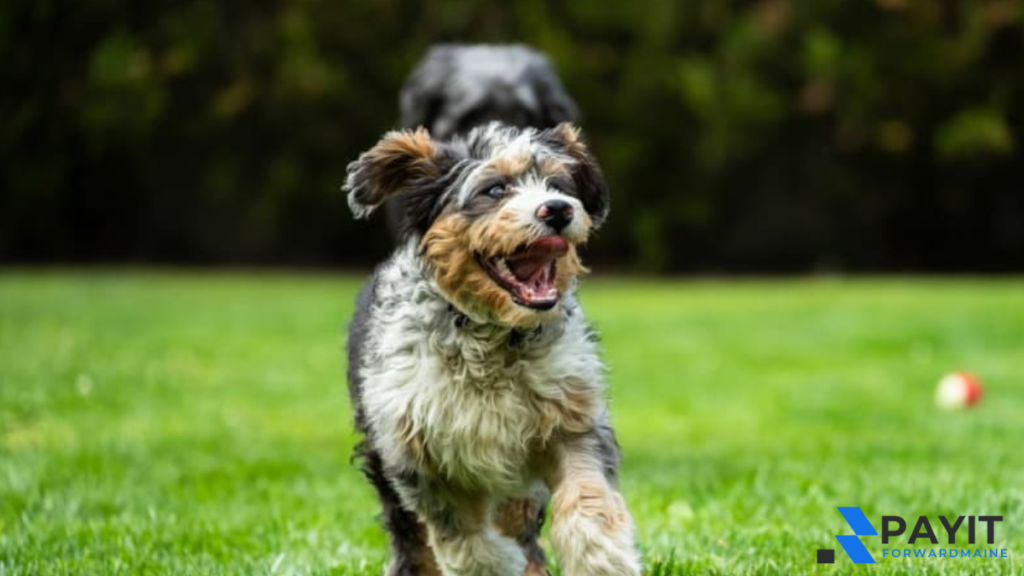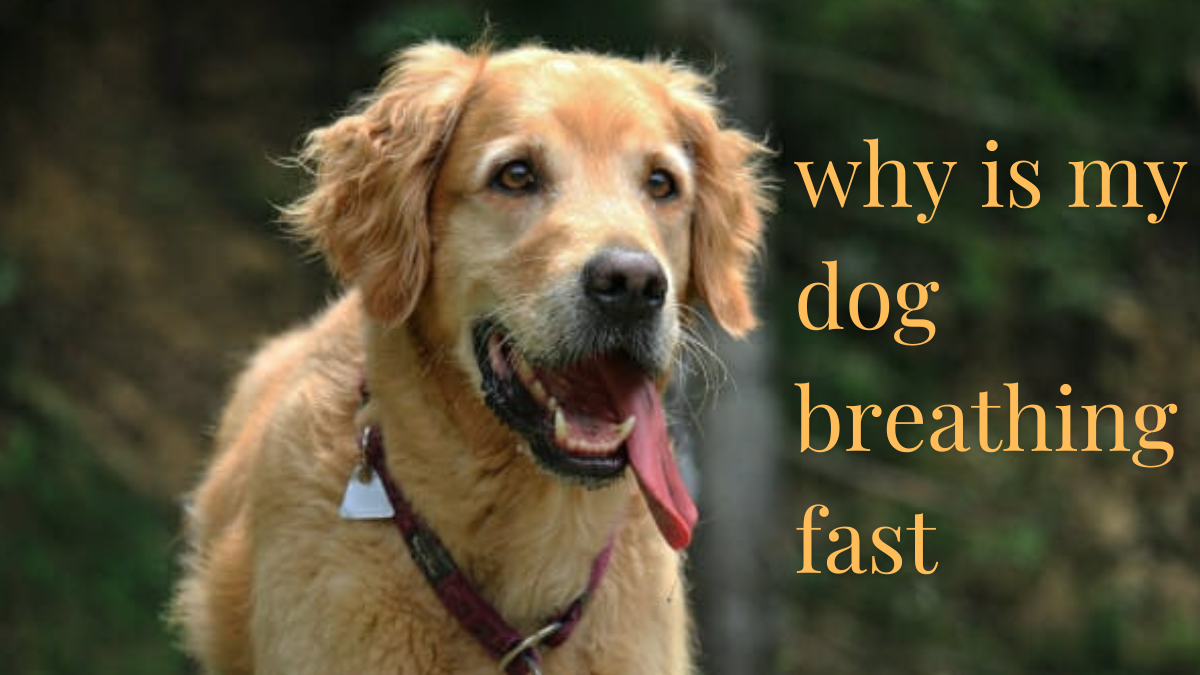Table of Contents
If you’ve ever asked yourself, “What’s causing my dog’s rapid breathing?” you’re not alone. It can be worrying to see your dog panting or breathing heavily without knowing the cause. Why is my dog breathing fast? There are several reasons why this might happen, and in most cases, it’s a sign of something manageable. To keep your pet safe and happy, it’s crucial to identify the typical causes and come up with solutions.
Why is my dog breathing fast?

Why is my dog breathing fast? Fast breathing, also called tachypnea, occurs when your dog takes more breaths per minute than usual. You might notice your dog’s chest rushing or your nose flaring. While some quick breathing is normal after exercise or on a hot day, it can sometimes indicate health problems.
If your dog is resting or asleep and still breathing quickly, it could be a sign of an issue that needs attention.
Common Causes of Fast Breathing in Dogs
So, why is my dog breathing fast? There are several reasons, and it’s essential to know them to decide what action you should take.
1. Heat and Overheating
One of the most common reasons for fast breathing is heat. Dogs pant to cool down because they can’t sweat like humans do. If the weather is hot or they’ve been running around, their fast breathing might mean they’re trying to cool off. Ensure your dog has plenty of water and shade, and try to keep them out of the sun during the hottest part of the day.
2. Anxiety or Stress
Just like people, dogs can get anxious or stressed. Fast breathing can be a physical sign of your dog feeling nervous. Common triggers include loud noises (like fireworks), new environments, or separation anxiety when you leave the house. If you notice fast breathing during stressful events, try to comfort your dog or remove them from the situation.
3. Exercise
Why is my dog breathing fast? After playtime or a long walk, your dog’s breathing should be fast. It’s normal for their body to be trying to get more oxygen to their muscles. Allow them to relax and chill down. Their breathing should return to normal after a few minutes of relaxation.
4. Respiratory Issues
Sometimes, fast breathing is linked to a lung or airway problem. Conditions like asthma, bronchitis, or a blocked airway could be behind the fast breaths. If you think your dog is struggling to breathe or coughing, it’s best to visit the vet to rule out any severe respiratory conditions.
Click here to read more about: How Long Does Pre Workout Last? Timing Explained
5. Heart Problems
Fast breathing can sometimes be a symptom of heart disease. If the heart isn’t working correctly, your dog’s body may not get enough oxygen, which could cause it to breathe faster to compensate. If your dog is breathing quickly and seems tired, weak, or has a persistent cough, it’s a good idea to consult your vet.
6. Pain or Injury
When dogs are in pain, they might breathe faster. If your dog is limping, has a swollen area, or is acting differently, fast breathing could be a way of showing their discomfort. Monitor any other symptoms and check for injuries that need a vet’s attention.
7. Illness or Fever
Why is my dog breathing fast? Fast breathing can also be a sign that your dog has a fever. Dogs with infections or illnesses often breathe faster because their bodies are trying to fight off germs. If your dog seems lethargic, has a warm nose, or is off its food, these might be signs that it has a fever.
Solutions to Help Your Dog Breathe Normally
Now that we’ve covered the possible reasons for fast breathing let’s explore some solutions to help your dog feel better.
1. Provide a Cool, Comfortable Space
If your dog is overheating, make sure it has a cool place to rest. Keep it indoors during hot weather, give it plenty of water, and try to keep the environment calm and quiet. You can also place a fan nearby to help cool it down.
2. Reduce Stress and Anxiety
If your dog is breathing fast due to anxiety, try creating a calming environment. Soft music, dim lighting, and reassurance from you can help. Calming products, like sprays and supplements, are also designed to reduce anxiety in dogs. Regular routines and gentle exercise can also help keep your dog calm.
3. Monitor Their Exercise
After a play session, let your dog rest quietly until its breathing returns to normal. Try not to over exercise your dog, especially in hot weather. Keeping your dog at a healthy weight through exercise and diet will also reduce the risk of fast breathing related to heart or respiratory issues.
Check out this article: Why is my dog breathing fast? Common Causes and Solutions
4. Check for Injuries
If you suspect your dog’s fast breathing is due to pain, give them a gentle check for injuries. Call your vet for advice if you notice any swelling, limping, or signs of discomfort. Pain-related fast breathing should be addressed quickly.
5. Visit the Vet for Persistent Fast Breathing
If your dog’s fast breathing doesn’t go away after rest or it shows other symptoms like coughing, lethargy, or loss of appetite, it’s time to consult the vet. Early detection of any serious issues, like respiratory or heart conditions, can help your dog get the treatment it needs to recover.
When Should You Be Concerned?

Why is my dog breathing fast? While some fast breathing is normal, knowing when to be concerned is essential. If your dog is breathing rapidly while resting or sleeping or if it seems uncomfortable, this could be a sign that something is wrong. Why is my dog breathing fast? Trust your instincts—if your dog’s breathing doesn’t seem right, it’s always best to seek professional help.
Has the question, “Why is my dog breathing fast?” crossed your mind? Understanding the many reasons and remedies is crucial. While fast breathing is often a normal reaction to heat, exercise, or stress, it can also indicate more severe health problems. Why is my dog breathing fast? By understanding the common causes and knowing when to seek help, you can ensure your dog stays healthy and happy.

